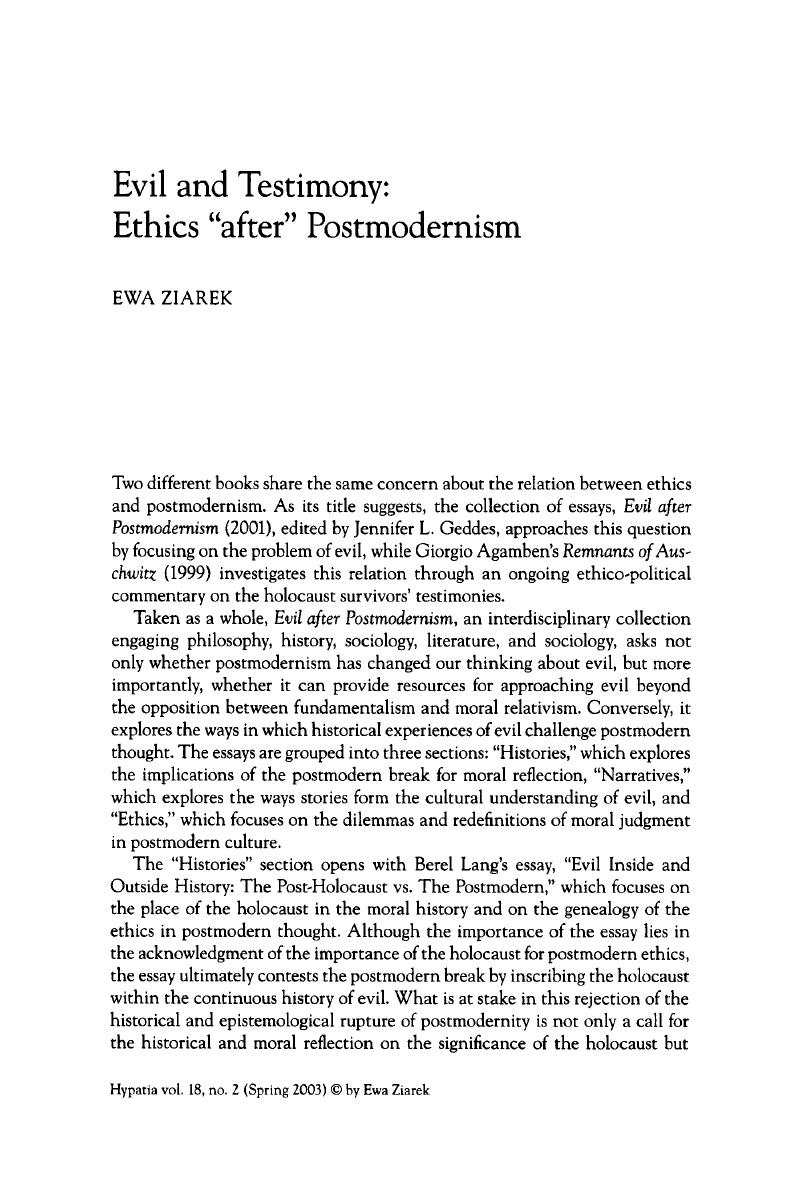No CrossRef data available.
Article contents
Evil and Testimony: Ethics “after” Postmodernism
Published online by Cambridge University Press: 11 March 2020
Abstract
An abstract is not available for this content so a preview has been provided. Please use the Get access link above for information on how to access this content.

- Type
- Review Essays
- Information
- Hypatia , Volume 18 , Issue 2: Special Issue: Indigenous Women in the Americas , Spring 2003 , pp. 197 - 204
- Copyright
- Copyright © 2003 by Hypatia, Inc.
References
Agamben, Giorgio. 1999. Remnants of Auschwitz: The witness and the archive. New York: Zone Books.Google Scholar
Felman, Shoshana, and Laub, Dori. 1992. Testimony: Crises of witnessing in literature, psychoanalysis and history. New York: Routledge.Google Scholar
Geddes, Jennifer L., ed. 2001. Evil after postmodernism: Postmodernism, narratives and ethics. New York: Routledge.Google Scholar
LaCapra, Dominick. 1994. Representing the Holocaust: History, theory, trauma. Ithaca, N.Y.: Cornell University Press.Google Scholar
Levi, Primo. 1986. Survival in Auschwitz and the reawakening: Two memoirs. Trans. Woolf, Stuart. New York: Summit Books.Google Scholar
Levi, Primo. 1989. The drowned and the saved. Trans. Rosenthal, Raymond. New York: Random House.Google Scholar
Oliver, Kelly. 2001. Witnessing: Beyond recognition. Minneapolis: University of Minnesota Press.Google Scholar


